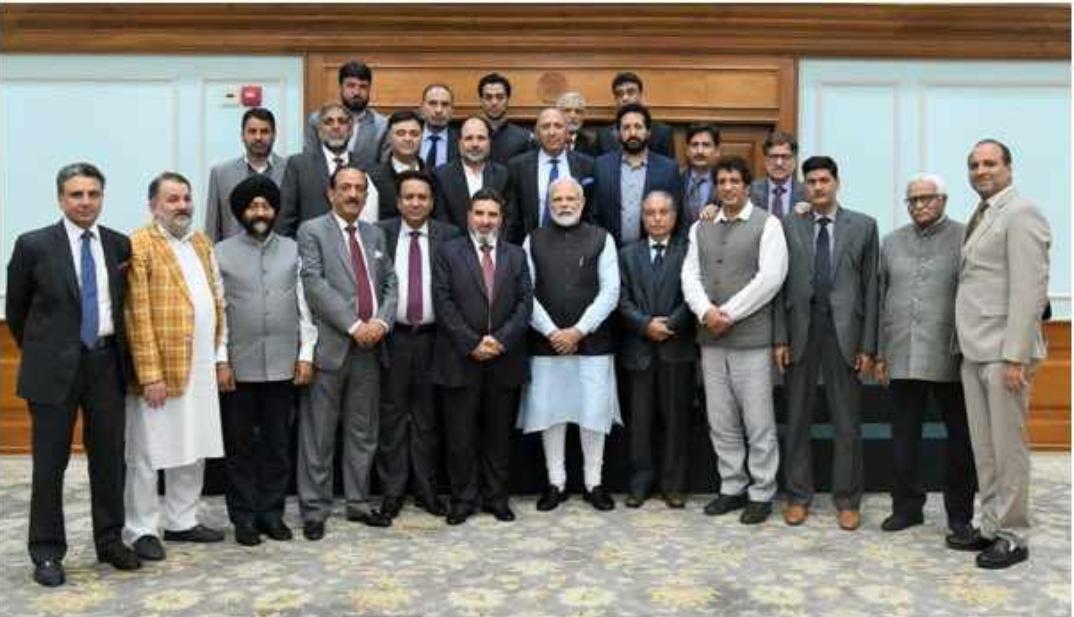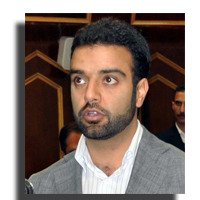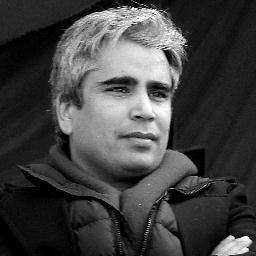Nearly ten months after the erstwhile Jammu and Kashmir state was stripped of its special status and downgraded into two union territories on August 5, the political situation is shaping, seemingly. However, the emerging routine as of now is a cocktail of political grapevine and the rumours, reports Tasavur Mushtaq

The political buzz is back in Jammu and Kashmir. Last week news reports flashed about the establishment of a civilian advisory council, which will assist the incumbent Lieutenant Governor, GC Murmu. The prick came after BJP’s J&K point man Ram Madhav spoke about “allowing” full-fledged political process in a newspaper article. If sources are to be believed, the serious discussions are being held at the “final stage.”
Earlier, it was reported that the businessman turned politician Syed Mohammad Altaf Bukhari is tipped to head UT’s 12-member next caretaker government. The swearing-in ceremony of the government is said to be held at Jammu in the first week of June. Reportedly, eight members would be sworn in from BJP, while four would be inducted into the government from Apni Party. However, as per the sources, Bukhari who is camping in Delhi for the last three months dismissed the rumours. “It is a good joke,” he said.
Omar’s Visit
Another interesting development came after National Conference (NC) vice president Omar Abdullah taking the first flight on Monday, May 25, after the resumption of air traffic at the Srinagar Airport. Stated to be personal, his Delhi visit was seen as an addition to the already developing stories. Omar had to come clear on Twitter where he posted his movement pass as well as picture in the aircraft.

“And this is the permission that was formally applied for & received. It would have to be a very stupidly planned “secret trip” that left so many witnesses & a massive paper trail in its wake. Can the media now stop their idle speculation & report actual news rather than fiction,” he wrote on Twitter. “This was the “special jet” sent for me & about 40 other people courtesy of @AirAsiaIndian.”
In between, his young party leaders had a tussle back home. Given the social distancing in place, they “fought” it on social media. Former minister and three-time legislator Aga Ruhullah went against Omar’s former political advisor Tanvir Sadiq. The contention was an opinion expressed in a write-up by Tanvir in the local daily where he wrote about reconciliation without mentioning Article 370. This has upset party’s chief spokesperson and senior leader Ruhullah Mehdi, who objected to such overtures from the party leader.
To settle the rumblings within his party, Omar had to intervene, “@RuhullahMehdi & @tanvirsadiq are both valued colleagues & friends. As far as I’m concerned they are both entitled to an opinion & to disagree with each other. Neither’s views, expressed in a private capacity, change the stand NC has taken in the SC & outside regarding 5th Aug.”
Though the “controversy” is officially settled, the fact is it is part of the party’s gossip these days. Insiders said that some of the senior leaders do not see any “wrong” in what Agha said. But there is also a strong group within NC that sees the tussle between the young men as the outcome of “pushing them on the big chairs”.
Delimitation Dilemma
On Thursday, May 28, when the Supreme Court heard a plea on the Delimitation Commission, the Commission held its meeting and nominated associate members.

Among others, the nominated members included all Jammu and Kashmir Kashmir MPs including Dr Farooq Abdullah, Hasnain Masoodi, and Mohammad Akbar Lone, all from the NC and Union minister and Udhampur MP Jitendra Singh and Jammu-Poonch MP Jugal Kishore Sharma. Both the Jammu leaders are the BJP men.
Caught in the conundrum, the NC took around a day to declare their decision. It was no to the participation. “This delimitation commission is a product of the J&K Re-organization Act 2019 which JKNC is challenging in and outside Hon’ble SC. Participating in this delimitation Commission will be tantamount to accepting the events of 5th Aug 2019 which the NC is unwilling to do,” read the party statement.
Unwilling to carry any such exercise before 2026, the NC party said “according to the constitution of J&K, the constituencies of J&K were to be delimited in 2026 with the rest of the country.”

On the contrary, the party is contesting constitutional changes in the Supreme Court. The petition has been filed challenging the J&K Reorganization Act passed on August 5, 2019. The petition has been accepted and referred to as a constitutional bench along with at least ten other petitions on the same issue.
In J&K, the last such exercise to alter the boundaries was carried out in 1995. Later in 2002, the government led by NC amended the Jammu and Kashmir Representation of the People Act 1957 and Section 47(3) of the Constitution of J&K freezing delimitation of the state’s constituencies.
The Commission constituted by the Narendra Modi government on March 6 has been set up to redraw boundaries and sizes of electoral constituencies for Jammu and Kashmir, Assam, Manipur, Arunachal Pradesh, and Nagaland. Chaired by former Supreme Court Judge Ranjana Prakash Desai, it held its first meeting on April 29.
According to section 60 of the Jammu and Kashmir Reorganisation Act, 2019, the number of seats in the Legislative Assembly of the Union Territory shall be increased from 107 to 114 with due reservations for SC and STs. This also includes 24 seats reserved for Pakistan administered Kashmir (PaK).
The erstwhile state had 87 seats in the assembly and six in Parliament, which got reduced to 83 and five, respectively, after it was bifurcated to make Ladakh a separate UT. In effect, the seats will go up from 83 to 90 for J&K.
As per the sources in the UT administration, the commission is said to be a powerful body, whose orders cannot be challenged in any court of law.
Earlier, delimitation commissions have been set up four times in the past, 1952, 1963, 1973 and 2002.
As the Government of India is rolling out its Kashmir management plan by announcing interventions, a belief is growing and getting stronger that the Covid-19 is being used to its full potential. Nomination to the de-limitation came days after the domicile rules were framed. In quick follow up, 10,000 vacancies were announced to be filled. For all these applications or even the new school admissions, the authorities have made the domicile certificate’s a mandatory affair.
Why Aga Ruhullah May Have To Adjust With The New Political Reality?
“The students have to file forms for a professional examination and they are seeking the domicile certificate,” one resident from Sheikhpora in Budgam said. “I am a permanent resident so my son will not have to fudge any record but the crisis is when the official spokesman addresses media virtually which Deputy Commissioner will be able to issue the certificate to him.” He said the move is aimed at getting the first flock to accept the new norm.















